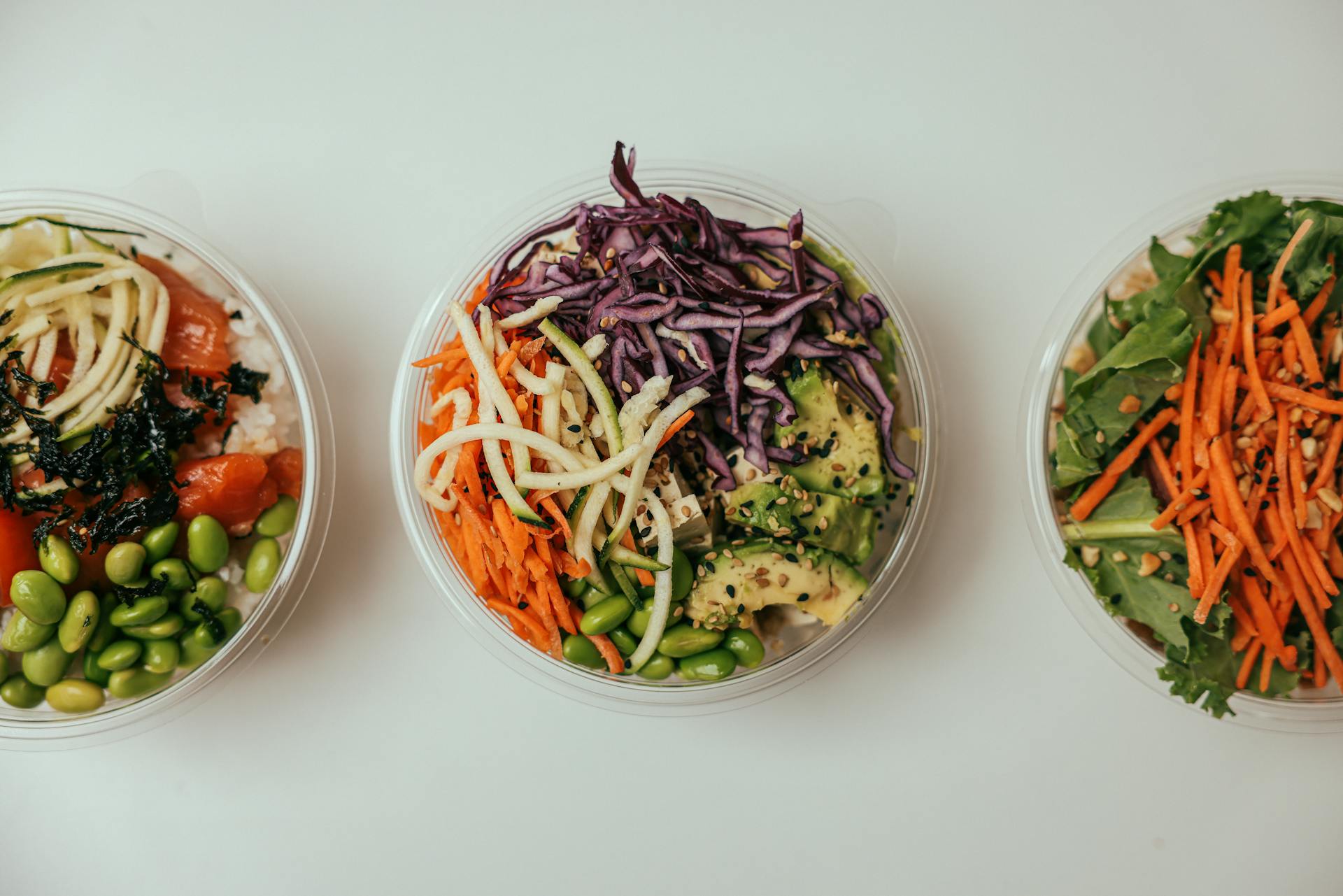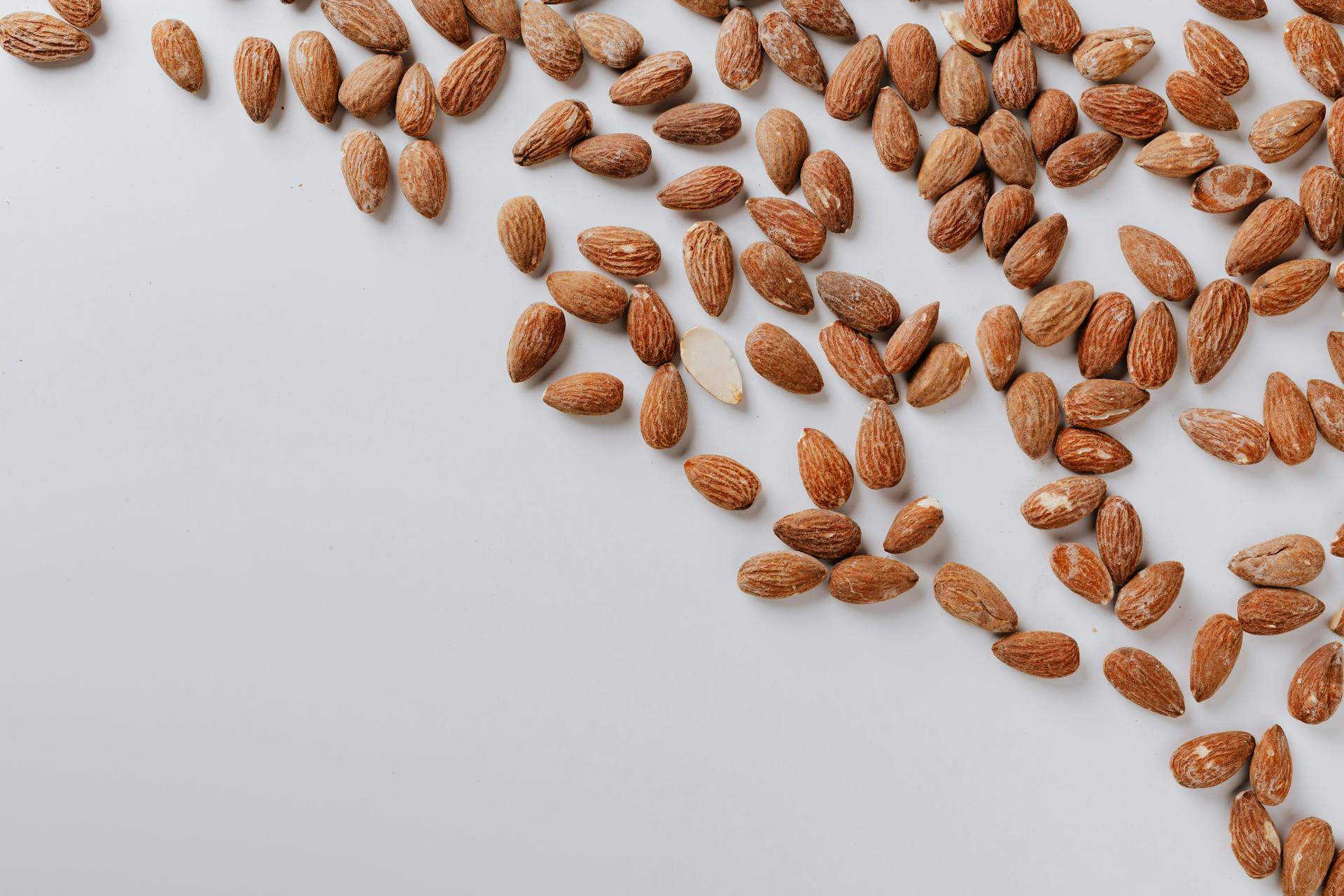
Are you looking for a healthy snack to add to your diet? Look no further than edamame beans. These delicious little green pods not only make a great appetizer or side dish, but they also offer numerous health benefits.
Edamame beans are naturally gluten-free and provide protein, iron, and other essential nutrients. They are low in calories and high in fiber, making them an excellent option for those trying to lose weight or maintain a healthy diet. But that's not all - the health benefits of edamame go beyond just their nutritional value.
For another approach, see: Ketogenic Diet Foods
Discover the Advantages of Edamame you Never Knew About!
Edamame beans are the immature soybeans that come in their pods, and they're packed with nutrients that you may not have known about. These vegetable-type soybeans differ from regular soybeans and are typically light brown tan, and many people enjoy them as a healthy snack or side dish.
One of the advantages of edamame is that they're an excellent source of plant-based protein, which makes them perfect for vegans and vegetarians. Additionally, edamame contains high amounts of fiber, iron, vitamin C, manganese, and folate that help support a healthy heart and digestive system. So next time you're looking for a nutritious snack or ingredient to include in your meals, consider adding some delicious edamame to your diet!
If this caught your attention, see: 50 Super Healthy Foods
1. Edamame calories
Wondering how many calories are in a cup (160 grams) of cooked edamame? One serving contains around 224 calories, which is roughly 11% of the recommended daily calorie intake for an adult depending on their age and activity level. But don't let the number scare you off – edamame is still a great snack choice thanks to its high protein and fiber content, making it a filling option that can help keep you satisfied between meals.
You might enjoy: Bananas Calories Carbs
Discover Delicious ways of eating Edamame!

Discovering delicious ways of eating edamame is a great way to add variety to your diet. Edamame is a soybean that can be eaten both in its pod-shelled and out-of-pod forms. To buy edamame fresh, look for it at your local grocery store or farmer's market, and when buying frozen edamame, make sure it does not contain any additives.
Edamame is becoming increasingly popular due to its numerous health benefits, including a high protein content and the potential for developing genetically modified versions suitable for local growing conditions. As the demand for this superfood grows, so do the options for how to prepare and serve it. Whether you enjoy it as a snack or as part of a main dish, discovering new ways to eat edamame can be both nutritious and delicious.
1. Serving tips
Serving edamame is easy and versatile. The mild buttery flavor of edamame makes it perfect for soups, stews, salads, rice dishes, and as a simple snack. Some serving tips include boiling the pods in salted water until tender or roasting them in the oven with sea salt sprinkled on top. Trust us, once you taste the benefits of edamame, you'll be hooked!
2. Edamame recipes
Looking for some tasty edamame recipes? Try making crispy parmesan garlic edamame or spicy tofu with edamame beans. Edamame is a great source of protein, fiber, and various vitamins and minerals, making it a nutritious addition to any meal. Keep reading to learn more about the benefits of edamame!
Effortless Ways to Get Edamame Ready for Snacking
Edamame is a popular snack in Japanese restaurants, sushi bars, and for good reasons. It is also available in large supermarkets and health food stores in the United States typically found in the frozen vegetable section. Edamame healthy and is considered one of the top 8 soy foods that provide numerous health benefits.
While edamame may be simply eaten as a snack, there are several effortless ways to incorporate this delicious legume into your diet. You can add it to soups stews salads or noodle dishes to enhance their flavor and nutritional value. Not only does edamame provide protein, fiber, vitamins, and minerals, but it also offers a crunchy texture to any dish.
Despite concerns about edamame's impact on thyroid function at high doses, studies suggest that consuming moderate amounts of soy (including edamame) don't have a significant impact on thyroid function unless you have an underlying thyroid disorder. So feel free to enjoy this versatile legume without worrying about any negative effects on your health!
Explore further: Watermelon Health Benefits
1. Rich in vitamins and minerals
Edamame is a healthy snack that is rich in vitamins and minerals. In fact, cooked edamame contains high amounts of the main nutrients our body needs to function properly. A cup (160 grams) of mature soybeans (3) provides around 17 grams of protein, 8 grams of fiber, and a good source of iron, magnesium and potassium. Keep reading to discover more edamame benefits you won't want to miss!
2. May lower cholesterol
Edamame, a decent source of soy protein, is said to have many health benefits. Observational studies have linked abnormally high levels of low-density lipoprotein cholesterol (LDL) to an increased risk of heart disease 4. A review concluded that consuming 25 grams of soy protein per day can lower circulating cholesterol levels, which translates to a lower risk of heart disease, and the Food and Drug Administration (FDA) approves health claims about soy protein and heart disease 6. Eating edamame, with its healthy fiber, antioxidants, plant compounds, and protein antioxidants, could improve your blood lipid profile by reducing fats including cholesterol and triglycerides 7.
Recommended read: Protein in Egg
3. May promote healthy blood sugar regulation
If you eat lots of foods that are high in rapidly digested carbohydrates, it can lead to poor blood sugar regulation and increased risk of developing health conditions like type 2 diabetes. However, beans like edamame are easily digested carbs relative to other foods that raise blood sugar levels. This makes edamame suitable for a diet high in glycemic index, as it may promote healthy blood sugar regulation and prevent high post-meal blood sugar levels that excessively raise blood sugar levels and increase the risk of chronic disease.
For your interest: 10 Foods High in Magnesium
4. High in protein
Edamame is a plant-based protein source unlike any other, offering a rare protein 1-2 punch of high quality and quantity. For those who rarely eat high protein animal foods, it's important to pay special attention to daily protein intake. Cooked edamame contains a decent amount of protein - with one cup (160 grams) of edamame providing approximately 17 grams of protein. Additionally, soybeans are one of the few plant foods that contain all essential amino acids making them an excellent choice for vegetarian diets.
If this caught your attention, see: High Protein Foods
5. May reduce the risk of prostate cancer
Edamame, a popular soy food, may reduce the risk of prostate cancer - the most common type of cancer among men in the United States. About 1 in every 100 men will develop prostate cancer in their life between ages 19 and 20. Observational studies show that eating soy products like edamame can lead to reduced risk of prostate cancer. Although no strong conclusions can be drawn, evidence suggests that edamame and other soy foods might benefit women too.
6. Might reduce bone loss
Studies have found that regularly consuming soy protein products, including soy products like edamame, might reduce bone loss. This is particularly important for older people, especially postmenopausal women (23-24), who are at an increased risk of developing fragile bones. While high dose soy supplements may not necessarily reflect the benefits of consuming isolated components, incorporating more soy into your diet could positively affect bone health in older women.
Safety Concerns: The Realities of Side Effects

When it comes to edamame nutrition, people choose this nutritious legume for its health benefits. However, as with any food, there are potential side effects to consider. Edamame soy is made from immature soybeans and can be found in many soy products. One safety concern is the use of genetically modified organisms (GMOs). If you wish to avoid consumption of GMO foods due to long-term health effects, antibiotic resistance, or other concerns, selecting organic varieties can help.
Another safety concern with edamame and other soy products is the risk of food allergies. For those who have an allergy to legumes or soy, consuming edamame may not be a good idea. Additionally, preparation methods such as soaking, sprouting or fermenting can significantly reduce the antinutrients present in the final product while increasing digestibility.
Fortunately, research shows that for healthy adults without an iodine deficiency or thyroid function issues, moderate consumption of soy products does not impact thyroid function. However, if you are following a low-carb diet that restricts carb consumption or have thyroid issues, it may be best to limit your intake of edamame and other high-carb legumes to avoid any adverse effects on thyroid function. Ultimately, it's important to make informed decisions about what we eat and consider any potential side effects when incorporating new foods into our diets.
1. Final Thoughts
In conclusion, edamame is a nutritious legume that provides numerous health benefits, including increased weight loss, enhanced heart health, and reduced bone loss. The edamame nutrition profile boasts important vitamins such as folate and manganese. Additionally, edamame is also beneficial for blood sugar control and may lower the risk of certain diseases. To make edamame, it can be enjoyed boiled, steamed, roasted, seared or simply microwaved. Adding edamame to your diet can be a healthy addition to a balanced diet and it's also non-GMO.
2. Flavan-3-ols: Academy of Nutrition and Dietetics Unveils Daily Plant Compound Intake Guidelines
The Academy of Nutrition and Dietetics has released daily guidelines for the intake of flavan-3-ols, a plant compound found in foods like edamame. Flavan-3-ols have been shown to have numerous health benefits, including reducing the risk of heart disease and improving cognitive function. Incorporating edamame into your diet is an easy way to ensure you're meeting these important guidelines while also enjoying a delicious and nutritious snack.
Frequently Asked Questions
Does edamame and mukimame the same thing?
No, edamame and mukimame are not the same thing. Edamame is a type of soybean that is harvested when it is still young and green, while mukimame is a variety of edamame that has been shelled and precooked.
Is too much edamame bad for You?
No, eating too much edamame is not bad for you as long as it is consumed in moderation. Edamame is a great source of protein, fiber, and important nutrients that can benefit your health.
Can you eat edamame on a keto diet?
Yes, edamame can be included in a keto diet as it is low in carbs and high in protein. However, portion control is important to stay within the daily carb limit.
Does edemame count as a vegetable or a bean?
Edamame is a type of soybean that is harvested when it is still young and green. It is considered a vegetable because it is eaten as a whole pod, rather than just the bean itself.
Is edamame keto friendly food?
Yes, edamame is a keto-friendly food since it's low in carbs yet high in protein and fiber. It can be enjoyed as a snack or added to salads, soups, and stir-fries while still staying within your daily carb limit.
Featured Images: pexels.com


